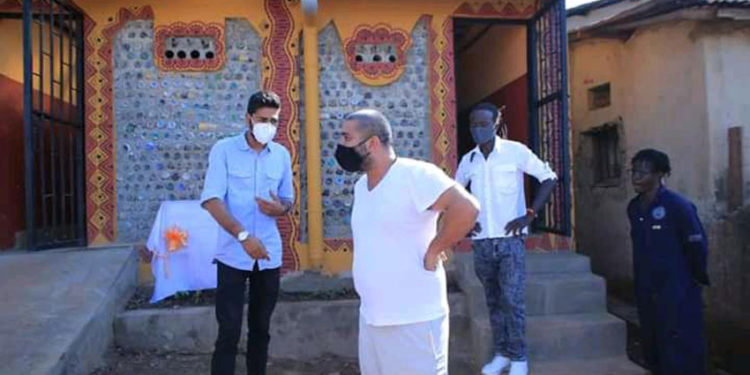Conservationists say, at least 600 tonnes of plastics are consumed every day in Uganda and half of this in Kampala, Uganda’s capital city. It is also believed that more than half of the used plastics in the city are disposed of irresponsibly. In a city where at least 51% of plastic garbage in the city is uncollected, this plastic waste is left to be washed away to clog the already over-stretched drainage systems resulting into floods and diseases, whenever it rains.
The problem of plastic waste aside, city dwellers especially those living in the ghettos lack access to safe and adequate sanitary facilities.
Now, Ruparelia Group of Companies through its Ruparelia Foundation recently stepped in to ensure that plastic waste is no more in Kampala city slums. The foundation is doing this through building eco-friendly toilets in the ghettos.
Eco-toilet is a product of the Ghetto Research Labs, a community-based NGO in Kampala’s Kamwokya slums. The bricks used to construct the toilets are made out of stuffing and compacting polythene bags, commonly known as kaveera into used plastic bottles and sealing them off with a cap.
A one-litre bottle can accommodate up to 750 kaveera while a 500ml bottle takes in up to 200 bags. The eco-bricks are then used as substitutes for normal clay bricks that are then used along with normal cement and sand mortar to erect wall structures.
One of these toilets has been built at Good Samaritan Primary School, a poor neighbourhood school of 500 pupils in Kamwokya. The facility that was constructed with proceeds from last year’s Royal Ascot Goat Race was handed over last week.
The project saw 13 million different types of plastics removed from the environment and 22,000 plastic bottles recycled to make bricks that were used to build the toilets.
Ruparelia Group managing director, Rajiv Ruparelia said the objective of the project is to improve health, education, sports and general welfare among the slum dwellers.
He said plastic bottles collected from the slum were used to construct these eco toilets, hence the project played a double role of improving community hygiene and environmental conservation through recycling the bottles.
At least 10 toilets were created out of this project for the school and the community.
“The objective is to see how we can measure our social impact through using waste products and the project is aimed at saving the schools without toilets,”Rajiv said.
Do you have a story in your community or an opinion to share with us: Email us at editorial@watchdoguganda.com













